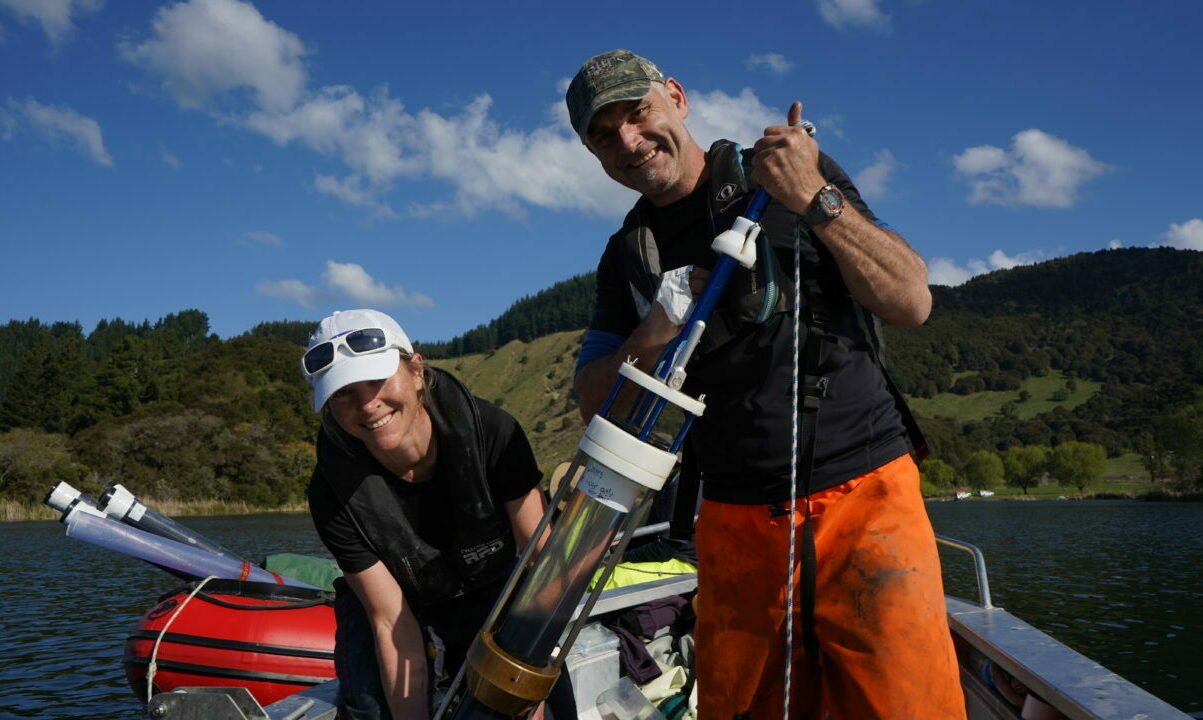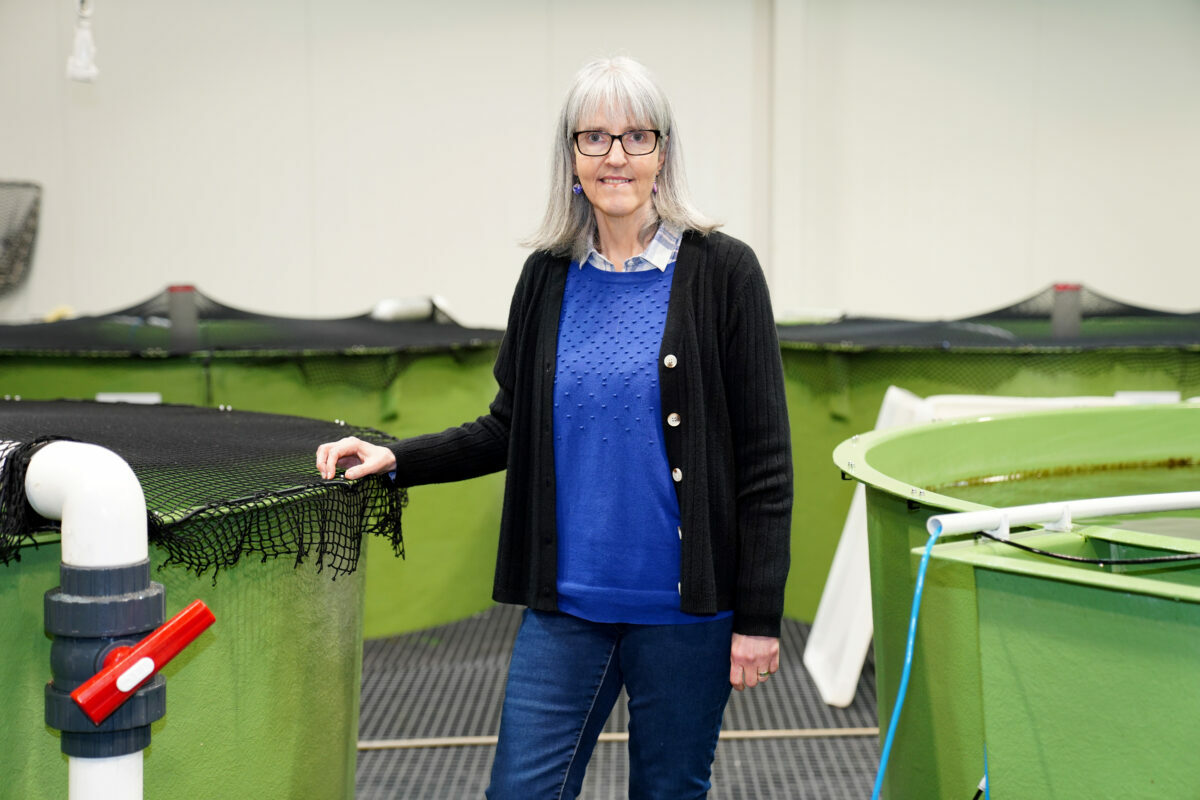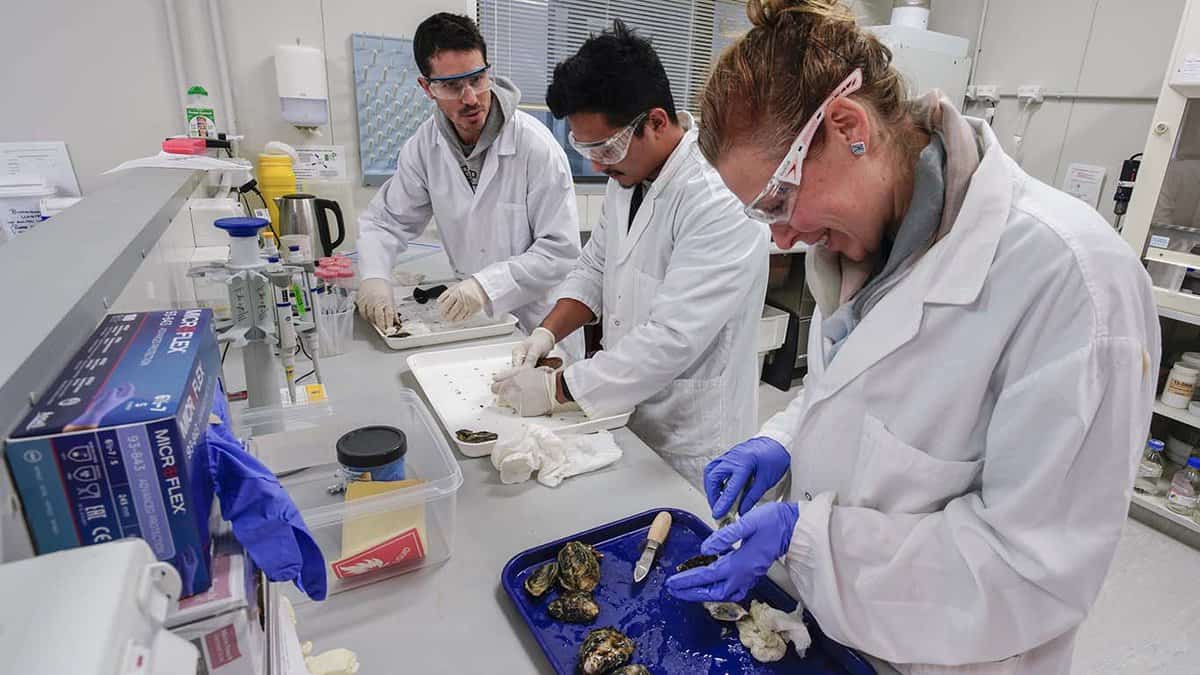Cawthron Institute celebrates five successful bids in 2023 MBIE Endeavour funding round
15 September 2023
Cawthron Institute is celebrating the announcement that five of its bids for the 2023 MBIE Endeavour Fund round have been successful. Two Research Programme bids and three Smart Ideas proposals were awarded, making this Cawthron’s most successful contestable funding round to date.
Cawthron Institute’s Chief Executive Volker Kuntzsch says these results will enable science that has a significant real-world impact against some of the biggest challenges facing Aotearoa New Zealand’s environment, economy and society.
“In a competitive funding environment where there are so many strong bids submitted, this result speaks to the innovation, collaboration and hard work of our researchers, and I am thrilled for them,” Kuntzsch says.
“Our vision is to create a better future where ecosystems are healthy, communities are thriving, and we have a prosperous blue economy, and all of these successful bids enable research that supports those outcomes.”
Our lakes, our future
The first successful Research Programme bid ‘Our lakes, our future: Holistic approaches to transform lake management and restoration in a changing world’ builds on the ground-breaking discoveries of the Cawthron and GNS Science led Lakes380 Programme. The new Programme will develop a globally unique approach to monitoring and revitalising our lakes.
Dr Susie Wood, who co-leads the project with Dr Marcus Vandergoes (GNS Science), says ‘Our lakes, our future’ is a highly collaborative project involving four iwi partners – Manawhenua Ki Mohua, Rangītikei iwi, Te Arawa Lakes Trust and Ngāti Pāhauwera – 13 national and international research institutes including University of Waikato, Victoria University of Wellington and University of Otago, and 15 stakeholders including regional councils and central government.
“The Programme will develop a suite of tools to understand lake health, identify stressors and effective restoration methods, and assess the long-term sustainability of those methods in revitalising our lakes,” says Wood.
“The lakes of Aotearoa New Zealand are so important to our cultural, social, and environmental well-being. We urgently need to prioritise their protection and revitalisation.”
Fast-tracking Finfish Climate Change Adaptation
The second successful Research Programme bid will prepare Aotearoa New Zealand’s finfish aquaculture industry for the impacts of climate change.
Programme leader Dr Jane Symonds says ‘Fast-tracking Finfish Climate Change Adaptation’ will enable the finfish aquaculture sector to thrive and adapt in an uncertain climate future by creating future adaptive breeding strategies, incorporating climate-change forecasting and identifying strategies to respond to emerging threats.
“This programme will utilise innovative phenotyping, genetics and genomics techniques to transform breeding strategies and improve finfish resilience” Symonds says.
“We will work with partners AgResearch and Plant & Food Research to co-design breeding programmes with industry and iwi, helping established (salmon) and emerging taonga (treasured, endemic) species like tāmure/snapper to thrive and providing options for species diversification.
“Our research will meet an urgent need by accurately identifying resilient finfish that will be bred to improve survival, welfare and performance in multiple environments, ultimately ensuring that the right species and genotypes are farmed in the right locations as climate futures emerge.”
Cawthron Institute’s three successful Smart Ideas proposals:
‘XNA-based biosensors for low-cost marine toxin screening’ – A project led by Dr Jack Hervey to develop a new kind of testing kit that uses biosensor technology to detect the presence of marine toxins using a smartphone device and reusable tests. This approach would make seafood safety testing more affordable, sustainable and simple to use in the field, empowering a wider range of people to become involved in protecting their communities.
‘Applying a functional evidence approach to prioritise lake restoration’ – A project led by Dr John Pearman that will develop a DNA-based approach to assessing lake health that targets lake sediments and identifies the organisms living within the sediment and their function in the lake’s ecology. The goal is to create a user-friendly dashboard that distils complex data into helpful and practical insights that guide restoration, protection and management efforts.
‘Boosting shellfish resilience to diseases: vaccination as a novel approach’ – A project that will develop a vaccine to protect shellfish against current and future diseases. Using the Pacific oyster and the OsHV-1 or oyster herpes virus as a model, this project will propose a safe and cost-effective technology to protect young Pacific oysters on farms that will be transferable to other species. It will improve economic and social outcomes for New Zealand’s oyster aquaculture industry.



